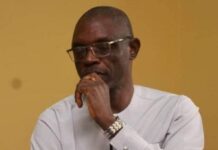Ohinoyi VS Kogi Government: Between Superiority Complex and Constituted Authority
By Nafisat Bello
Leadership in most African countries is characterised by parallel institutions – the political institution which represents the formal laws of the state and the traditional institution which takes care of the people’s culture, values and history.
In modern history, clear roles for traditional institution can be traced to the Richards Constitution of 1945, the 1951 Macpherson Constitution and the Republican Constitution of 1963 which operated bicameral legislative system in 1964 with regional House of Chiefs. And during the military era, between 1966 and 1978 in particular, some traditional rulers were appointed as board members for parastatals and other public institutions.
But since the 70s, the powers accorded to traditional rulers have progressively reduced. Finding appropriate roles for traditional rulers in the constitution has been difficult or the political players have lacked the political will to do so.
Traditional rulers therefore get hired and fired, get remunerated and controlled by the political establishment often headed by local government chairmen and governors who are often younger, weild enormous powers and dispense humongous resources. The monarchs obviously don’t find this second fiddle role palatable. In reality, the traditional institution is not even allowed to play second fiddle. The hierachy of power goes thus – Executive, Legislature, Judiciary and the Press.
That is why it is difficult if not impossible for anyone to separate this toxic superiority complex and bitterness on the side of the Monarchy from the ongoing feud between the Ebira traditional institution and the political establishment in Kogi state.
But challenging constituted authority (apologies to Late Senator Isiaka Ajimobi) has proved costly for monarchs in the past. Examples were the dethronement of Emir of Kano, Muhammadu Sanusi I in 1963 and that of his grand son Sanusi Lamido Sanusi in 2020. The late Oba Sir Olateru Olagbegi II of Owo in Ondo state also suffered similar fate in the 60s when he got himself involved in the Awolowo versus Akintola political crossfire. The 19th Emir of Gwandu, Mustapha Jokolo, was also booted out of the Palace by the state government in 2005 when he was deemed to be reckless in his words and actions.
The seeming cold rivalry between the Governor of Kogi state, Yahaya Bello, and the 94-year-old Dr. Ado Ibrahim, the Ohinoyi, paramount ruler of Ebiraland, recently degenerated into an avoidable confrontation when the latter reportedly shunned a historic visit of President Muhammadu Buhari.
The President had on the invitation of Governor Bello paid a rare visit to Kogi state to commission the latter’s legacy projects and when the Presidential entourage arrived Okene, the Ohinoyi was conspicuously absent throughout the hours the event lasted.
This is despite the fact that the state government had said the monarch was duly invited. The back and forth that followed between Lugard House and the Palace is what Ebira sons and daughters at home and in the Diaspora have found embarrassing.
Apparently to cover the shame of not having the monarch around while hosting the President, a thoroughly embarrassed Governor Bello had to introduce the Ohi of Okengwe, Alhaji Tijani Mohammed Anage, as the representative of the Ohinoyi who he told his VIP guest was indisposed.
A justifiably angry state government had to issue a query to the respected monarch. The query was contained in a letter addressed to the traditional ruler which was dated 5th of January 2023, with reference no MLG A/CHt /39/VI/XX. The letter was signed by Mr. Enimola Eniola, Director of Chieftaincy Affairs.
According to the words and tone of the query, the state government could not hide its irritation on the unbecoming conduct of the monarch.
The letter read in part : “It has been observed with serious concern that you have exhibited deliberate attitude and actions capable of bringing Kogi State and Ebira land in particular to grave disrepute. These actions are quite unbecoming of a revered Royal Father of your status.
Read Also:
“Specifically, you were aware through many fora of the glorious visit of Mr. President and Commander-In-Chief of Nigerian Armed Forces, His Excellency, President Muhammadu Buhari GCFR to Okene on the 29th December 2022 to commission landmark projects executed by our dear Governor, Yahaya Bello.”
The query went ahead to ask the monarch to explain his justifiable reason, if any, for his absence.
Meanwhile, on the day the President was to pay the visit, there was a bomb blast close to Ohinoyi’s residence which had claimed about four lives and left some injured. According to Ohinoyi in his reply, he was in his palace waiting for the President to visit, but rather, instead of receiving the President, it was bomb explosion and harvest of sorrow, tears and blood that he received.
He described the query as “very unfortunate” and “unfair to his ripe age and experience.”
The Ohinoyi claimed his absence was due to lack of proper briefing and the unfortunate bomb blast.
“Rather, I was informed by the Commissioner for Local Government and Chieftaincy Affairs that the President would be coming to my palace for homage, following which arrangements were made to receive the presidential team in the palace,” he said.
He also accused the state government of being insensitive to the tragedy that befell his palace having failed to visit or write to commiserate with him on the bomb explosion.
“This Letter of Query is the first communication, written or otherwise from any official of the state to me, without any commiserations or enquiries about the unfortunate bomb blast that led to the intended disruption of Mr. President’s programme, loss of lives of innocent Ebira people, massive damages on my palace and rancor within my domain,” he said.
The present Ohinoyi, a Lagos-based entrepreneur, became the traditional ruler of Ebira land, after the demise of Ohinoyi Sanni Omolori of the Ogu clan in 1997, at a time Governor Bello was probably an undergraduate. He therefore sees the governor as a far younger person who is undeserving of his respect.
Since Bello’s coming in 2016, Nigerians have been shocked by how the monarch treats him. People are even more shocked that this is the first Ebira man to rise to that position yet the symbol of the greatness of Ebira people treats him with disdain. This writer has no reason to call the Ohinoyi a sadist but is this a case of a prophet not commanding respect in his own home? I say this because the governor is respected by and given his due honour by other monarchs across the country as he continues to win awards and commendations from all over the world.
In treating the governor with disdain, the monarch doesn’t even give attention to details as he wrongly referred to himself as the ‘Attah’ of Ebira land instead of Ohinoyi of Ebira land in his reply to the query.
In another letter dated January 16, 2023, the government rejected the monarch’s reply stating that he did not comply with the appropriate title of his stool.
Part of the letter reads, “Your personal decision to use the title of Atta Ebira and not Ohinoyi of Ebiraland in your official communication is at variance with sections 19a, 27(2b), 33 and schedules II and V of Kogi State Chiefs (Appointment, Deposition and Establishment of Traditional Councils in Kogi State) Law, 2006 and your letter of appointment issued to you with Ref. No. GHLK/KGS/22 dated 2nd of June, 1997.
“The title of Atta Ebira is alien to law and not recognised by Government. Therefore any correspondence with that title is unacceptable for official purposes.”
At this point, it is difficult to argue that the monarch has covered himself in glory in this scuffle. From the outset, he should have pocketed whatever disagreement he has with the governor and honoured President Buhari who was a special guest on that day. But he chose to disrespect the President and started a series of events that are now exposing innocent Ebira people to avoidable ridicule.
Monarchs are seen, across the country, as the custodians of our culture and, as such, are expected to be neutral father figures in their respective domains. Some of them are so highly regarded in their areas of influence that they are accorded spiritual authority as well. They are the ones the citizens, in spite of their political stance or affiliation, should look up to for succour and guidance in all circumstances. So these monarchs have to be above board like Caesar’s wife.
Governor Bello should meet the Ohinoyi behind closed-doors to iron out whatever differences they share before the issue degenerates beyond this.













